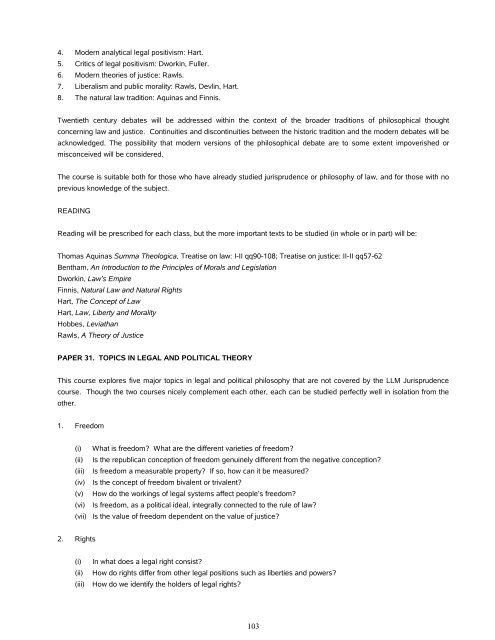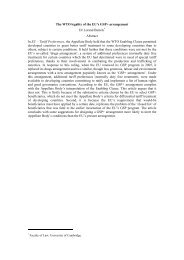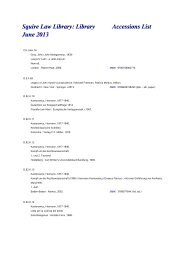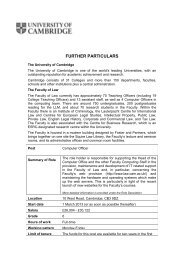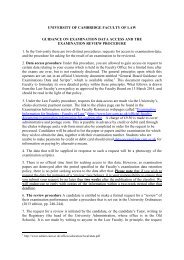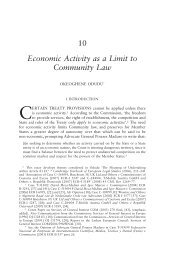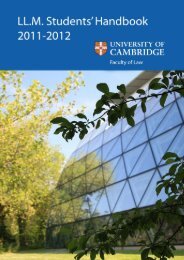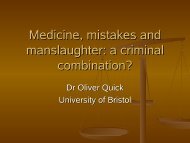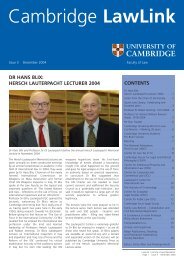Contents - Faculty of Law - University of Cambridge
Contents - Faculty of Law - University of Cambridge
Contents - Faculty of Law - University of Cambridge
Create successful ePaper yourself
Turn your PDF publications into a flip-book with our unique Google optimized e-Paper software.
4. Modern analytical legal positivism: Hart.5. Critics <strong>of</strong> legal positivism: Dworkin, Fuller.6. Modern theories <strong>of</strong> justice: Rawls.7. Liberalism and public morality: Rawls, Devlin, Hart.8. The natural law tradition: Aquinas and Finnis.Twentieth century debates will be addressed within the context <strong>of</strong> the broader traditions <strong>of</strong> philosophical thoughtconcerning law and justice. Continuities and discontinuities between the historic tradition and the modern debates will beacknowledged. The possibility that modern versions <strong>of</strong> the philosophical debate are to some extent impoverished ormisconceived will be considered.The course is suitable both for those who have already studied jurisprudence or philosophy <strong>of</strong> law, and for those with noprevious knowledge <strong>of</strong> the subject.READINGReading will be prescribed for each class, but the more important texts to be studied (in whole or in part) will be:Thomas Aquinas Summa Theologica, Treatise on law: I-II qq90-108; Treatise on justice: II-II qq57-62Bentham, An Introduction to the Principles <strong>of</strong> Morals and LegislationDworkin, <strong>Law</strong>’s EmpireFinnis, Natural <strong>Law</strong> and Natural RightsHart, The Concept <strong>of</strong> <strong>Law</strong>Hart, <strong>Law</strong>, Liberty and MoralityHobbes, LeviathanRawls, A Theory <strong>of</strong> JusticePAPER 31. TOPICS IN LEGAL AND POLITICAL THEORYThis course explores five major topics in legal and political philosophy that are not covered by the LLM Jurisprudencecourse. Though the two courses nicely complement each other, each can be studied perfectly well in isolation from theother.1. Freedom(i)(ii)(iii)(iv)(v)(vi)(vii)What is freedom? What are the different varieties <strong>of</strong> freedom?Is the republican conception <strong>of</strong> freedom genuinely different from the negative conception?Is freedom a measurable property? If so, how can it be measured?Is the concept <strong>of</strong> freedom bivalent or trivalent?How do the workings <strong>of</strong> legal systems affect people’s freedom?Is freedom, as a political ideal, integrally connected to the rule <strong>of</strong> law?Is the value <strong>of</strong> freedom dependent on the value <strong>of</strong> justice?2. Rights(i)(ii)(iii)In what does a legal right consist?How do rights differ from other legal positions such as liberties and powers?How do we identify the holders <strong>of</strong> legal rights?103


